Definition of subjects
first for the cycle
carded
The products coming from combing and combed spinning are valuable raw materials for the carded textile industry cycle. The scallop, for example, has been subjected to 3 individual processes: washing, carding and combing in preparation for spinning and subsequently weaving or knitting.
Combing separates long fibers (top) from short fibers (scallops), the latter they are intended for the carded cycle industry for the production of jackets, coats, sweaters, carpets, yarns for hand knitting etc. This is because these materials cannot and must not be considered waste but raw materials for subsequent processing.
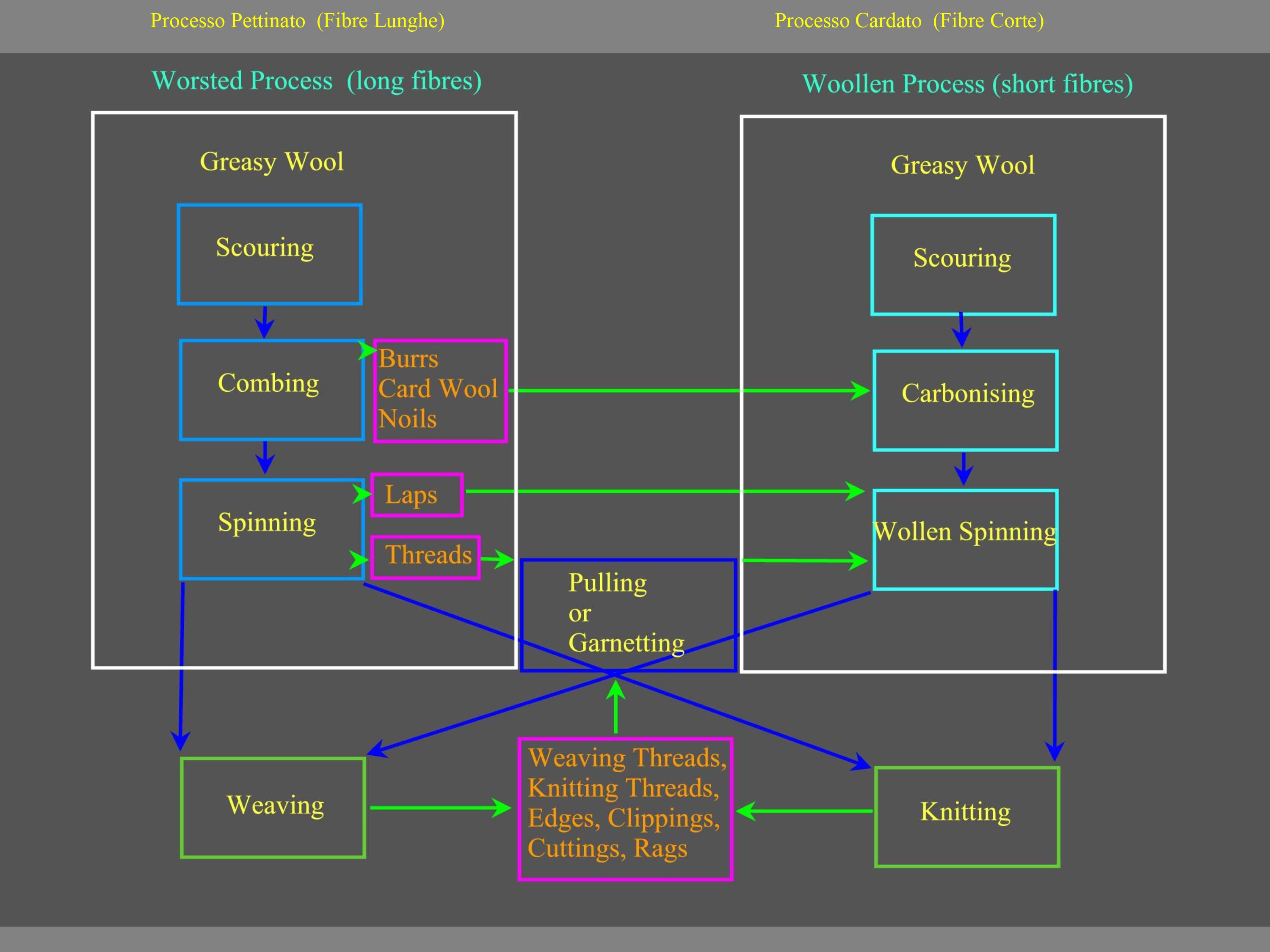
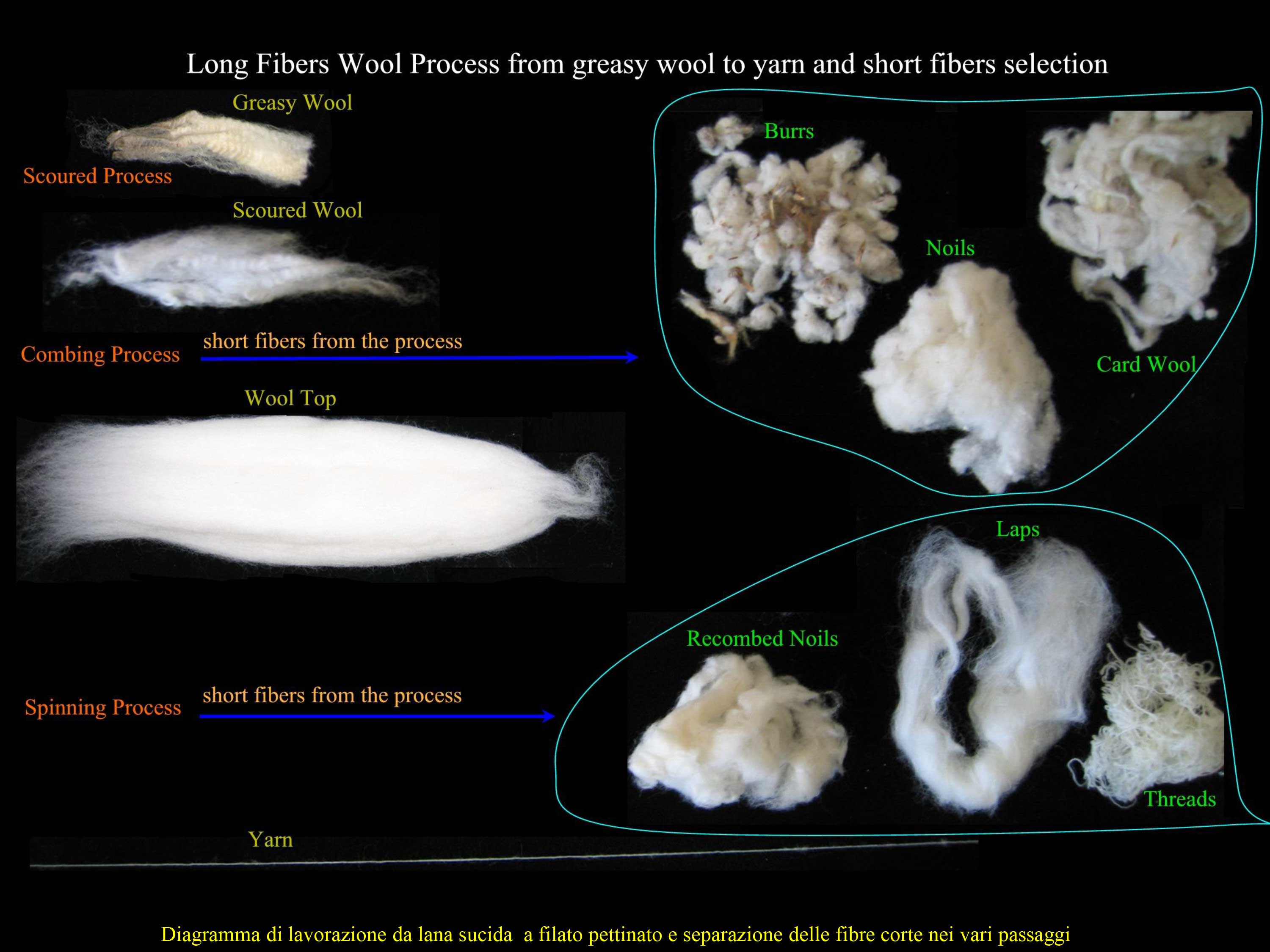
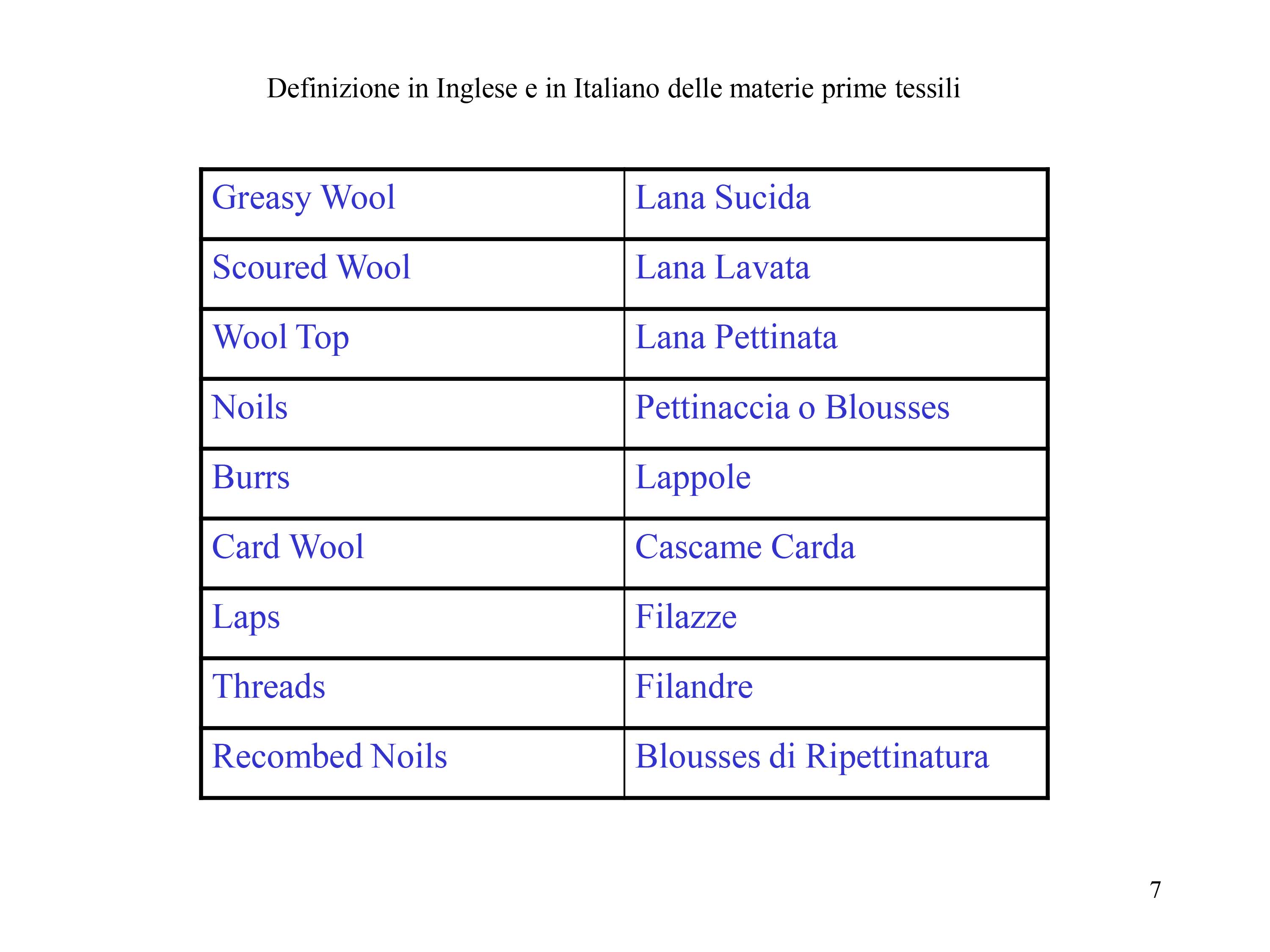
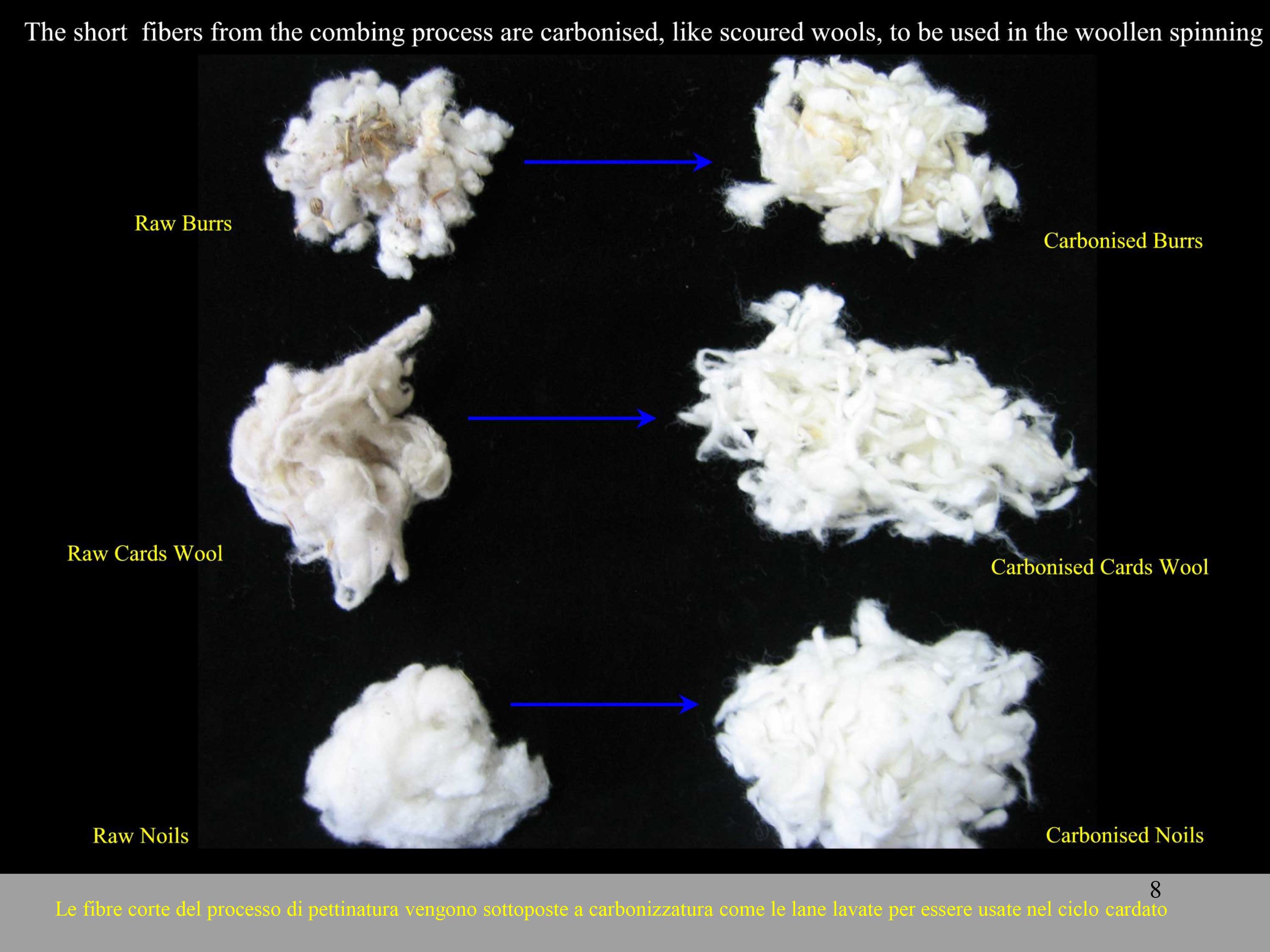
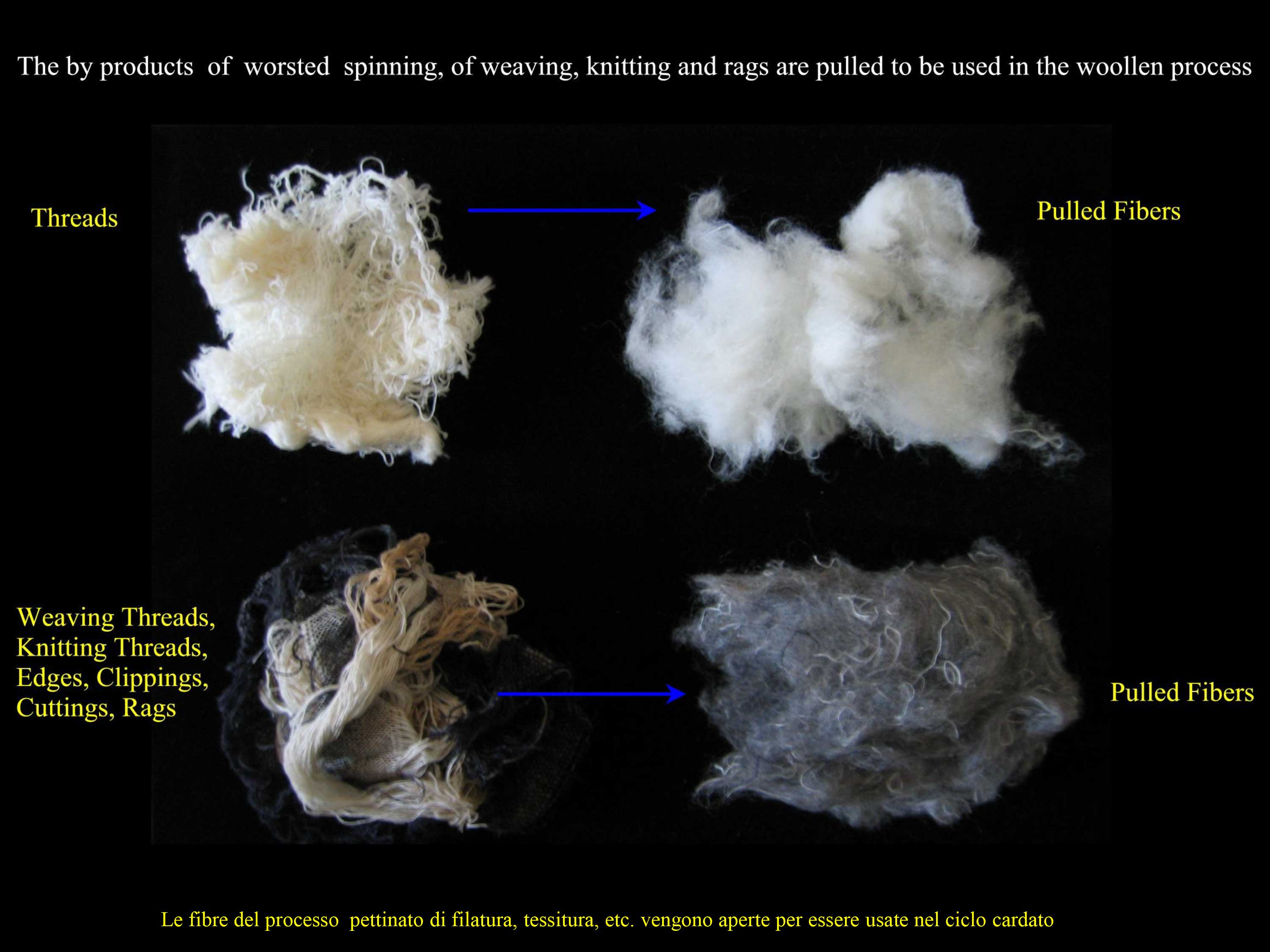
The heavy requirements of the waste regulations, subject textile raw materials to unjustified additional costs, which go to weigh on the trade, on the industry and on the finished product making it less competitive precisely when, to improve environmental protection, it would be necessary to facilitate its reuse. Governments and industries have a clear responsibility in developing policies and practices to ensure that renewable sources are used to achieve maximum effect in a common effort to reduce the global impact of waste, strictly speaking, on the environment.
The international textile wool community has always considered these raw materials as commercial products and reported their recovery rates for conditioning in the IWTO “Blue Book”.
Since the nineteenth century they have always been the subject of international trade.
IWTO: International Wool Textile Organization (International Wool Textile Organization) is the body that represents breeders, traders, processors and producers of woolen textile products and it is
recognized as a reference for international standards in its sector and its analysis certificates are recognized by banking institutions around the world.
